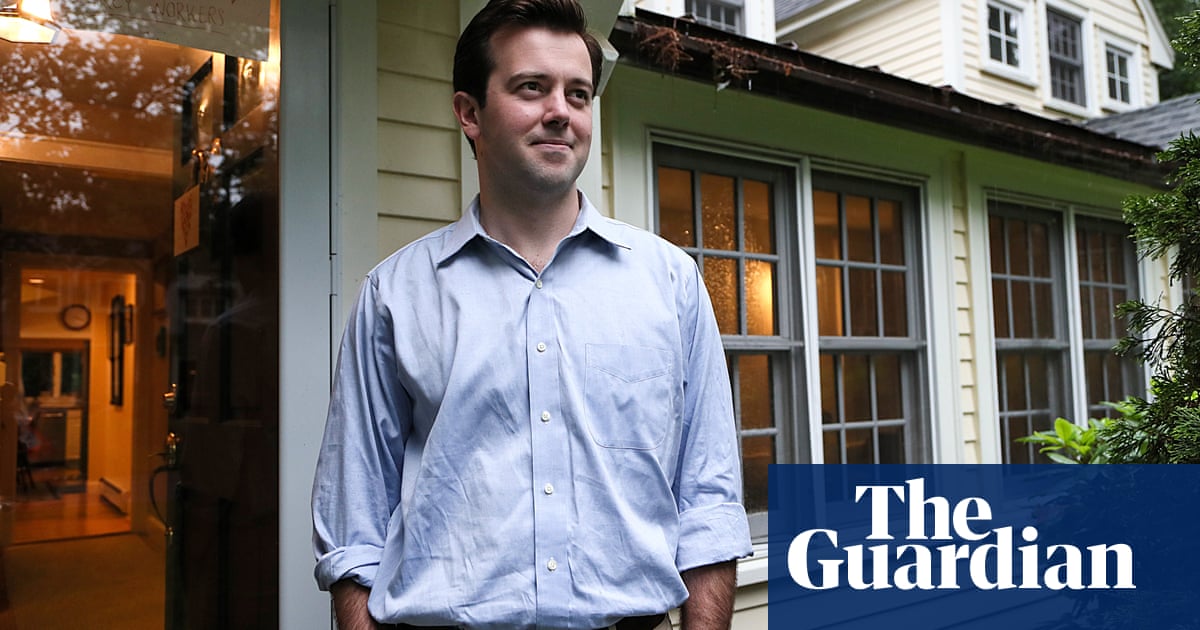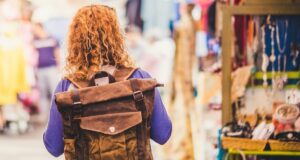
For Baltimore native Jessica Osei-Adjei, a week-long trip to Anchorage, Alaska, last summer was more than just her first time traveling solo.
“I went hiking on a glacier, camping and paddleboarding for the first time,” she says. “I’m not really an outdoorsy person but doing that was definitely worth it.”
Osei-Adjei’s trip to Alaska was organized through the American Exchange Project (AEP), a non-partisan initiative founded in 2019 to facilitate high school seniors’ traveling to and meeting with youth from differing sociopolitical backgrounds in an attempt to help unite what Tuesday’s elections have made clear is an increasingly divided US.
“We saw that emerging adults were perfect because they were malleable – we could put them through a shorter, easier-to-scale experience, and have it go much further than if we worked with adults,” co-founder and CEO of the AEP, David McCullough III, said.
“And teenagers were also perfect because they were a very quick way into their parents’ hearts. So we thought: ‘Let’s have an exchange program right here in America.’”
Over the past six years, the AEP has organized close to 1,000 student exchange trips, with students traveling to 70 towns in more than 40 states across the US.
Funded by organizations such as the MacArthur Foundation, Steven Spielberg and Kate Capshaw’s Hearthland Foundation, and other groups, students typically spend a week in a host family’s town free of charge, before hosting a student in their own home or community.
Read more of the Guardian’s 2024 US election coverage
“Most kids haven’t made up their minds politically. They have issues they care about, but they don’t really know the Democratic party or Republican party platform,” McCullough said.
McCullough believes that the political divide that’s so entrenched in US politics – and which is likely to be amplified after Donald Trump’s victory on Tuesday – is in part down to Americans not experiencing life or meeting people from a different geographic region or background.
A 2022 YouGov poll found that one in five people Americans had visited fewer than six US states. A 2016 study of 2,000 US adults, meanwhile, found that the average American had visited just a quarter of US states and that 10% had never traveled outside their own state.
For Olmert Hirwa, a student from Maine, one of the biggest takeaways from his visit to Longview in east Texas centered on the issue of guns. Before visiting Texas, he had never held a gun – but after spending a week in Longview, he found a new understanding for why people carry weapons.
“What I learned is that people have guns because everyone has guns, and that guns are not the problem,” he said. “It’s the environment that people are in. It gave me a new perspective.
“I also thought [Texas] would be less accepting of people of color – that was probably the biggest misconception I had going over there. For a small town, [Longview] has a lot of things going on.”
Hirwa said he was still in touch with several fellow students he met during his time in Longview.
Still, the challenges facing initiatives like the AEP are not inconsiderable in today’s polarized society.
The rise of smartphones and the internet has further contributed to a sense of isolation among America’s youth, with researchers suggesting in 2020 that “a poisonous cocktail of othering, aversion and moralization poses a threat to democracy”.
Divisive rhetoric at the political level has forced many to take sides, creating a sense that the country is more divided now than in the past. In most states, one party or the other controls the governorship and entire legislature.
Some reports suggest Americans are increasingly moving to states that better fit their social and political views, further embedding a sense of division within the US. A report published by the real estate company Redfin in February found that one-third of real estate agents had clients who said they moved primarily because of state or local laws or politics.
after newsletter promotion
“We are, at the moment, faced with some really challenging issues and we are talking about them in all of the wrong, most divisive ways,” McCullough said.
“I’m wary that our country is doing two things that are really problematic – too often Americans would prefer to be right than to be effective. And [second,] national conversations are so frayed and divisive in a country that is enormous, incredibly diverse and prone to individualism.”
He says some of the main challenges the AEP faces surround securing funding, and finding and recruiting more host families.
“We have tons of interest across the country, but it’s going to be a lot of work to see all this through,” he said.
Still, the program continues to grow.
In 2023, about 475 students took part in exchanges. The AEP is planning to recruit 625 for next summer.
For Osei-Adjei, the learnings of her 3,000-mile trip to Alaska went both ways.
“I think that some people assumed that Baltimore was some extremely dangerous place,” she said. “People [in Alaska] were asking how often do I witness crime.
“I told people I pretty much live like a normal citizen; I don’t fear for my life. I think them being here too can make them see that it’s just a normal city.”
When other exchange students came to Baltimore, she said they were surprised by the city’s waterfront and the array of activities.
Next up for Osei-Adjei? A trip back to Alaska next summer.
Read more of the Guardian’s 2024 US election coverage




